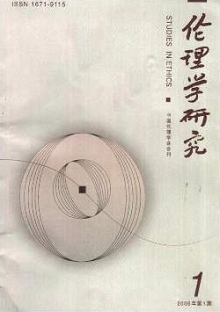|
|
View of Life for Harmonious Society
ZHOU Zhongzhi
2006(1):
7-10.
In multi-perspective of harmonization of interest, intention of life, determination of life and consumption of living, this essay argues that to build a harmonious society is calling inherently for an effort to do research on life philosophy, and accordingly puts forward the life philosophy, which is necessary to a harmonious society of socialism in China, is constituted by the ideas of giving the same due consideration to individual interests as social interests, being honest and cordial, keeping enterprising but gentle, and pursuing the physical and intellectual harmoniousness. Moreover, the author points out that to foster the life philosophy as a necessity of the harmonious society of socialism, it is appropriate to draw on the spiritual achievements of both the traditional and the abroad.
|



